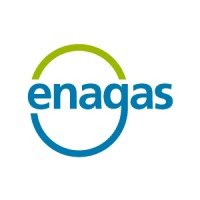PNE and OMNIA to produce green hydrogen in South Africa

OMNIA GROUP (PTY) LTD. and WKN WINDCURRENT S.A (PTY) LTD (WKN)., a fully owned subsidiary of German based PNE AG, have signed a Memorandum of Understanding (MoU) to evaluate the onsite production of green hydrogen and ammonia in South Africa.
This new ammonia production will be powered by renewable energy from hybrid sources. The PNE subsidiary is to develop the necessary equipment to combine energy generation from wind and solar with the production of the ammonia. The objective is to produce competitively priced green ammonia in the range of up to 100,000 tonnes per annum, which would result in a saving of 180,000 tonnes per annum of CO2 emissions.
“We are pleased to have found an experienced partner in OMNIA with whom we can collaborate to drive this important project for climate protection. Green hydrogen and its downstream products are key to facilitating South Africa’s decarbonisation and energy transition goals while unlocking sustainable growth opportunities,” said Markus Lesser, CEO of PNE AG. “For our group of companies, this is also an important step in the implementation of our Scale up 2.0 strategy, in which solutions around Power-to-X play a significant role.” In addition to the massive expansion of our own electricity generation from wind and solar, solutions relating to power-to-X also play an important role.
“As a diversified chemicals group that supplies chemicals and specialised solutions for the agriculture and mining industries, we are continually looking for ways to add value to our customers throughout our supply chain. Being innovative and using green technology is at the heart of our approach. The fact is that onsite production of green ammonia will significantly reduce our CO₂ emissions, embed sustainability into our products, and support the country’s green energy journey,” says Seelan Gobalsamy, CEO of Omnia.
“Working alongside partners like WKN means that we can develop technology solutions together that reduce industry risk, improve operational safety, and create a lower environmental footprint.”
A positive result of this collaboration would make South Africa less dependent on imports and constrained rail logistics as well as help achieve local industries’ decarbonisation targets by replacing CO2 intensive, conventionally produced ammonia.
The deepening of the green hydrogen value chain within South Africa will support the implementation of the South African government’s strategy to develop a green hydrogen economy by harnessing South Africa’s abundant natural resources of sun and wind to generate renewable energy. The government’s “Just Energy Transition Programme” with Germany and other countries has mobilised around $8.5 billion (USD) to accelerate the country’s transition to enhanced renewable energy sources. “South Africa is a fast-growing market. With projects like this, we are helping to achieve decarbonization targets,” adds Markus Lesser. “In addition, we remain true to our principle of only implementing economically successful commercial projects.”
The recent signing of this MoU will enable both parties to start the joint evaluation and planning of the green hydrogen and green ammonia plants.
